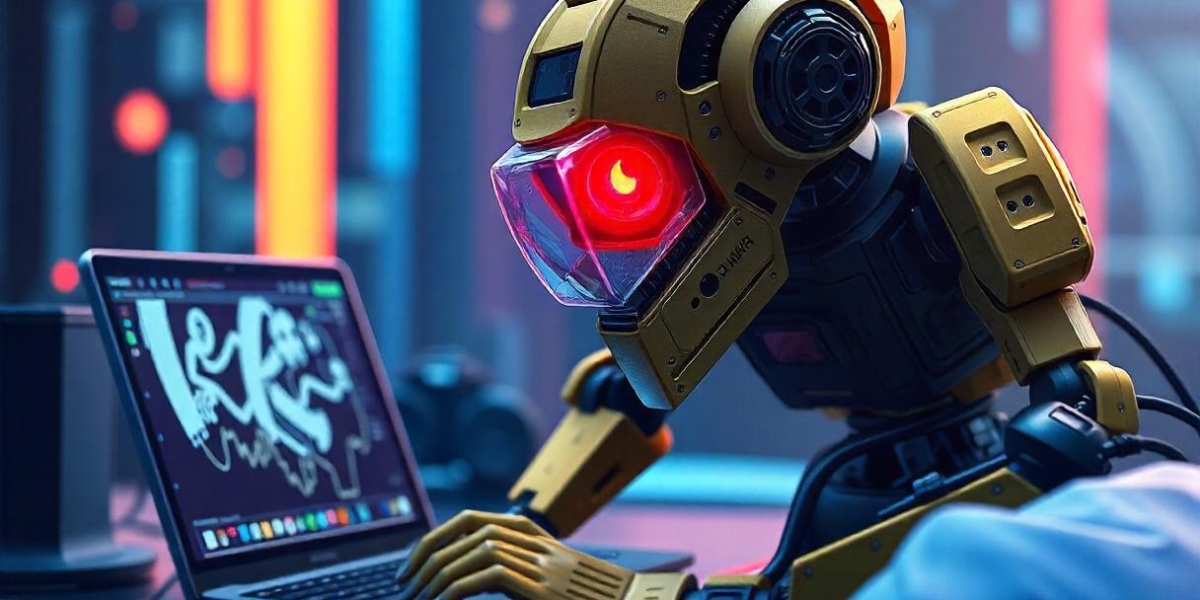AI is changing the gaming world by adding new levels of detail and realism to how games are played. It is now a key part of making games, helping to improve player involvement, simplify complicated tasks, and build lively, interactive game settings. AI influences everything from how characters act to the overall game environment, altering the way games are created and enjoyed.
Importance of AI for Enhancing Player Experience
AI plays a key role in improving how players enjoy games, making them more fun and interactive. With AI, developers can design smarter game features that respond better to players, resulting in deeper and more engaging gameplay. AI helps games adjust to how players act, provide tailored experiences, and keep the excitement and challenge high.
AI Technologies Revolutionizing Gaming
Adaptive Difficulty Levels
Machine learning algorithms help games change their difficulty based on how skilled the player is. This keeps the game challenging but not too hard, providing a balanced experience that keeps players interested.
Procedural Content Generation
AI-based procedural content generation helps create large and diverse game worlds without needing a lot of manual design work. This technology automatically produces new levels, maps, and environments, giving players a unique experience each time they play.
Enhanced NPC Interactions
Natural Language Processing (NLP) improves how non-playable characters (NPCs) interact by allowing for more natural and diverse conversations. NPCs can better understand and reply to what players say, making the interactions feel more real and interesting.
Contextual Dialogue Systems
AI-driven dialogue systems give replies based on the game's situation, player decisions, and previous chats. This creates richer storytelling and a more engaging narrative, as conversations change according to the game's context.
Real-Time Rendering Improvements
AI technologies are making real-time rendering better by increasing image quality and speed. AI algorithms help improve the rendering process, adding more visual details while keeping performance smooth, even in complicated scenes.
Dynamic Environmental Effects
AI plays a role in changing the environment, like altering the weather and day-night cycles, based on what happens in the game and what players do. These changes make the game feel more real and engaging.
Benefits of AI for Game Developers
Automating Testing and Debugging
AI tools make testing and debugging easier by automating these tasks, which saves time and resources. Automated testing finds bugs and performance problems faster, leading to a better development process. For game developers looking to leverage such advanced solutions, partnering with professionals offering AI development services can streamline this process even further, ensuring high-quality outcomes and efficient project management.
Efficient Asset Creation
AI assists in generating and optimizing game assets, such as textures and models, which speeds up the development process. This efficiency allows developers to focus on creative aspects while AI handles repetitive and time-consuming tasks.
Tailored Gameplay Based on Player Behavior
AI analyzes player behavior to tailor gameplay experiences, adjusting game elements to match individual preferences and playstyles. This personalization keeps players engaged by providing content that aligns with their interests and skill levels.
Personalized Storylines and Quests
AI can create personalized storylines and quests based on player choices and actions, offering a unique narrative experience for each player. This customization enhances replayability and deepens player investment in the game.
Creating Immersive Gaming Experiences with AI
Dynamic and Responsive Game Environments
AI enables game worlds to react dynamically to player actions, creating a more immersive and interactive experience. Environments can change in real time, reflecting player decisions and adding depth to the gameplay.
Realistic NPC Behavior
AI enhances NPC behavior, making characters act and react in ways that mimic human behavior. This realism adds to the immersion, as NPCs interact more naturally and contribute to a believable game world.
Intelligent AI Opponents and Allies
AI creates intelligent opponents and allies that adapt to player strategies and tactics. This ensures that challenges remain relevant and engaging, providing a continually evolving gameplay experience.
Customized Game Scenarios and Challenges
AI generates customized game scenarios and challenges based on player preferences and past performance. This personalization ensures that each playthrough offers new and exciting experiences.
Examples of AI in Modern Video Games
Examples of Dynamic World Building
Open-world games utilize AI to create expansive, interactive environments that evolve based on player actions. This dynamic world-building results in rich, immersive experiences where the game world feels alive and responsive.
Impact on Player Experience
The integration of AI in open-world games enhances player immersion by providing a more interactive and engaging environment. Players experience a sense of agency and influence over the game world, deepening their connection to the game.
Adaptive AI Strategies
In strategy games, AI adapts its strategies based on player tactics, offering a challenging and unpredictable opponent. This adaptability keeps players engaged by presenting new and varied challenges throughout the game.
Improving Game Balance
AI helps maintain game balance by adjusting difficulty levels and AI behavior in response to player performance. This ensures a fair and enjoyable experience for all players, regardless of their skill level.
Challenges and Future Trends in AI for Gaming
Computational Demands
AI technologies often require significant computational resources, which can impact game performance and development costs. Developers must balance AI complexity with system capabilities to ensure optimal performance.
Balancing AI Complexity and Performance
Striking the right balance between AI complexity and game performance is crucial. Developers need to optimize AI algorithms to enhance gameplay without compromising overall game performance.
Future Trends
Integration of AI with Augmented and Virtual Reality
The integration of AI with augmented and virtual reality (AR/VR) is set to revolutionize gaming experiences. AI will enhance AR/VR environments by creating more interactive and immersive experiences, bridging the gap between digital and physical worlds.
Evolution of AI Techniques in Gaming
AI techniques in gaming are continuously evolving, with advancements in machine learning, natural language processing, and graphics. Future developments will further enhance game design, making experiences more realistic and engaging.
Conclusion
AI has greatly changed the gaming industry by making experiences smarter and more engaging. It improves gameplay and tailors interactions for players, pushing innovation and raising game quality. As AI technology grows, its influence in gaming will increase, leading to even more creative and exciting experiences. The future of AI in gaming looks to enhance interactivity, realism, and personalization.









